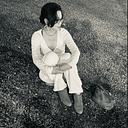Book Review —The OverStory By Richard Powers樹冠上
This book is one I’d recommend only to avid readers. Let me clarify; it’s for those who truly relish the experience of reading, as only the deeply committed could sustain such a substantial volume (600 pages) filled with the depth of information and emotions it contains.
What I admire most about this book is the author’s neutral attitude. It feels as though I’m witnessing real-life events or reading through someone’s documented experiences rather than delving into a work of fiction. This quality allows us to easily visualize the characters and scenes — activists, environmental protection activities, hippies, and academia — as if they were real and tangible.
Death is a constant theme, juxtaposed against the backdrop of nature’s ever-evolving presence. There isn’t a single thread that ties the book together; each persona has their own destiny, none of which ends well. The book itself resembles a tree, branching out with diverse narratives.
What struck me the most is the author’s profound knowledge of Asian history. I was taken aback when he referenced Chinese poems from the Tang Dynasty while crafting a protagonist with roots in Mainland China. He understood the nuances of the Tang Dynasty’s rule by nomadic tribes from Central Asia, cherishing water resources, nature, and animals. Moreover, the significance of the Chinese names given to the protagonist’s grandfather and father reflects the overarching theme of remembering lessons from the past.
How did the author manage to learn a foreign language and its history to such an extent, especially considering it only plays a small part in the novel? Throughout the book, he also delves into ancient Indian cultures and Buddhist practices to illustrate nature’s eternal changes — a central tenet in Buddha’s enlightenment.
The intertwining of various cultures and biological perspectives highlights the interconnectedness of life. Above our own existence, there exists an unknown nature that could be considered a religion.
As I read through the stories of nine individuals spanning over 60 years, I couldn’t help but reflect on humanity’s relationship with the environment and the fleeting nature of life. It almost feels as though Homo sapiens is merely a passing creature on Earth, destined to perish after ten thousand years.
Is it a documentation or a novel? The destiny, it seems, lies firmly in our hands.
